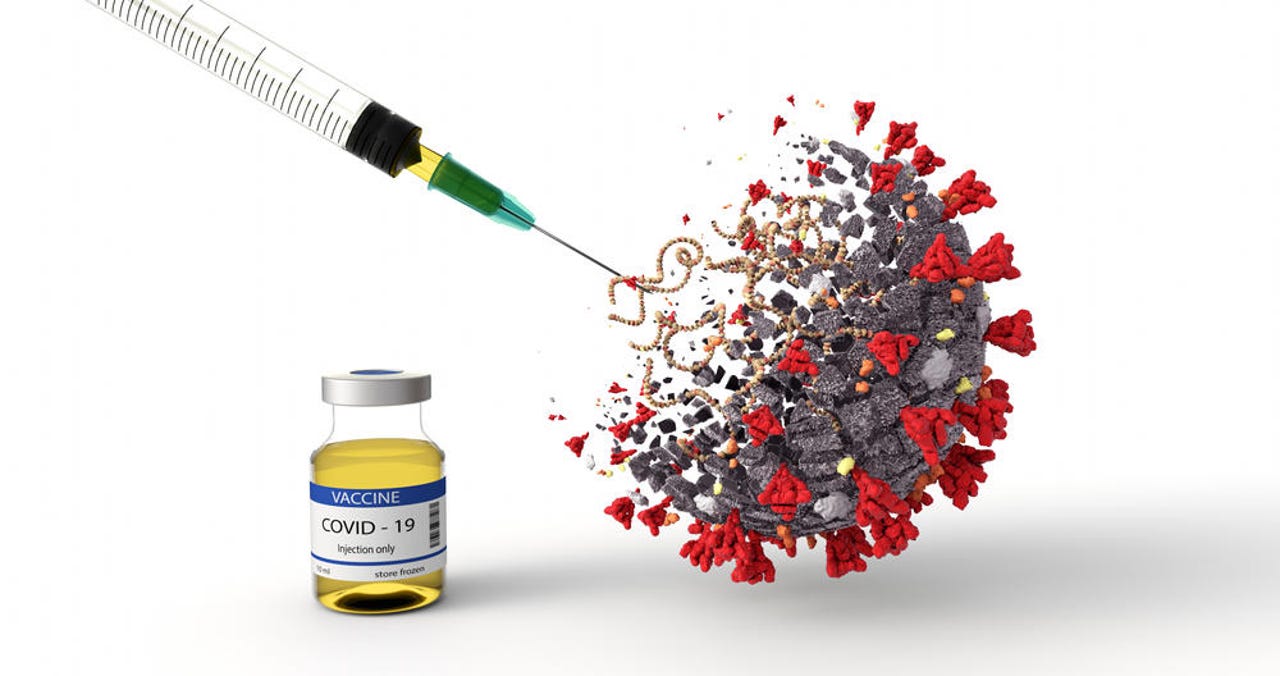Cold storage: COVID vaccines chill with helpful RFID chips


The COVID-19 vaccine is being fast-tracked by the FDA and in some areas is ready to go. However, one key distribution factor is presenting a major challenge: keeping it cold. Very cold.
Vaccines from the various pharma companies working on COVID-19 have different storage requirements. For example, Moderna's vaccine needs to be kept at -20 degrees Celsius (-4°F), while Pfizer's vaccine needs to be kept at -70 degrees Celsius (-94°F).
These strict temperature requirements must be adhered to and monitored throughout the entire supply chain to ensure that the vaccines are viable by the time they reach patients. Ensuring COVID vaccines are stored at the right temperature is critical, and that's very much a technology problem. It turns out there's one mature technology that could streamline the entire supply chain: RFID.
The vaccine is a critical step in getting back to normal and Radio Frequency Identification (RFID) systems are a practical and accurate solution for monitoring environmental conditions. Commonly used in hospitals, pharmacies, and other medical facilities as a means to track equipment and medications and monitor access control, wireless power RFID is an easy answer to the vaccine's stringent temperature requirements.
I connected with Charlie Goetz, CEO of Powercast, a leader in RF wireless power with millions of sensors currently being used in the market, about how wireless power and RFID can quickly and easily be deployed to help ensure the COVID-19 vaccine's efficacy and safety.
One of the first things to understand, according to Goetz, is the massive technological challenge of consistently and reliably monitoring the temperatures we're talking about.
"Running wires to internal temperature probes is an option, but wires cannot run out of the doors of these freezers or else they won't seal completely," explains Goetz. "Traditional glass and mercury thermometers are also an option, but they must be read by either opening the freezer (can only be done twice per day) or through a glass window (difficult). Digital thermometers that communicate via BLE can be problematic, as the freezers are often comprised of several inches of metal, insulation, and other communications-blocking materials. Additionally, most batteries are not designed to operate at such a low temperature, meaning that battery-powered temperature sensing devices are at risk of failing. Some battery manufacturers do offer products that operate at ultra-low temperatures, but a wirelessly powered alternative could be much more cost-effective."
Alternatively, a standalone, RFID-powered temperature probe can be powered and read externally from the freezer without having to run wires to probes, opening the door, or worrying about failure points such as communication issues or battery failure. The secret weapon of RFID is that it doesn't rely on batteries or connected power sources. Powercast has wirelessly powered sensor tags, which are capable of reading humidity, light, and temperature during the entire supply chain to ensure temperature integrity. The Powercast tags, which enable RFID-based monitoring of environmental conditions at high accuracy, harness Powercast's Powerharvester Chipset, which enables long-range, high-function RFID without the need for a battery. This technology enables completely maintenance-free and battery-free sensing and tracking solution for RFID applications, such as COVID-19 vaccine monitoring.
"RFID is already a standard in healthcare facilities around the world," explains Goetz, "meaning that implementing RF-powered devices such as wirelessly powered temperature probes won't require any additional infrastructure investment or installation. Powercast's RFID sensor tags, which utilize energy from RFID readers to take humidity, light, and temperature readings, have been on the market for nearly 4 years now. Our customers use them for everything from monitoring shipments to building automation control."
RFID technology is already being applied in the COVID-19 vaccine distribution program, including in an optional RFID chip embedded under the label of a prefilled syringe manufactured by the company Apiject. This application became the subject of a factually incorrect conspiracy theory purporting there was a government effort to track individuals via injected microchips -- the optional Apiject RFID chip is meant to be embedded in the syringe label and is in no way injectable.
With reports popping up about discarded COVID vaccines due to storage issues, the time is ripe for a robust and simple monitoring protocol. One of the main advantages of RFID is just how well developed and broadly distributed it is.
"Wireless power, as one can imagine, is an extremely horizontal technology in terms of applications. We have current active customers in the automotive, personal care, manufacturing, entertainment, medical, shipping and logistics, and aerospace industries, just to name a few."